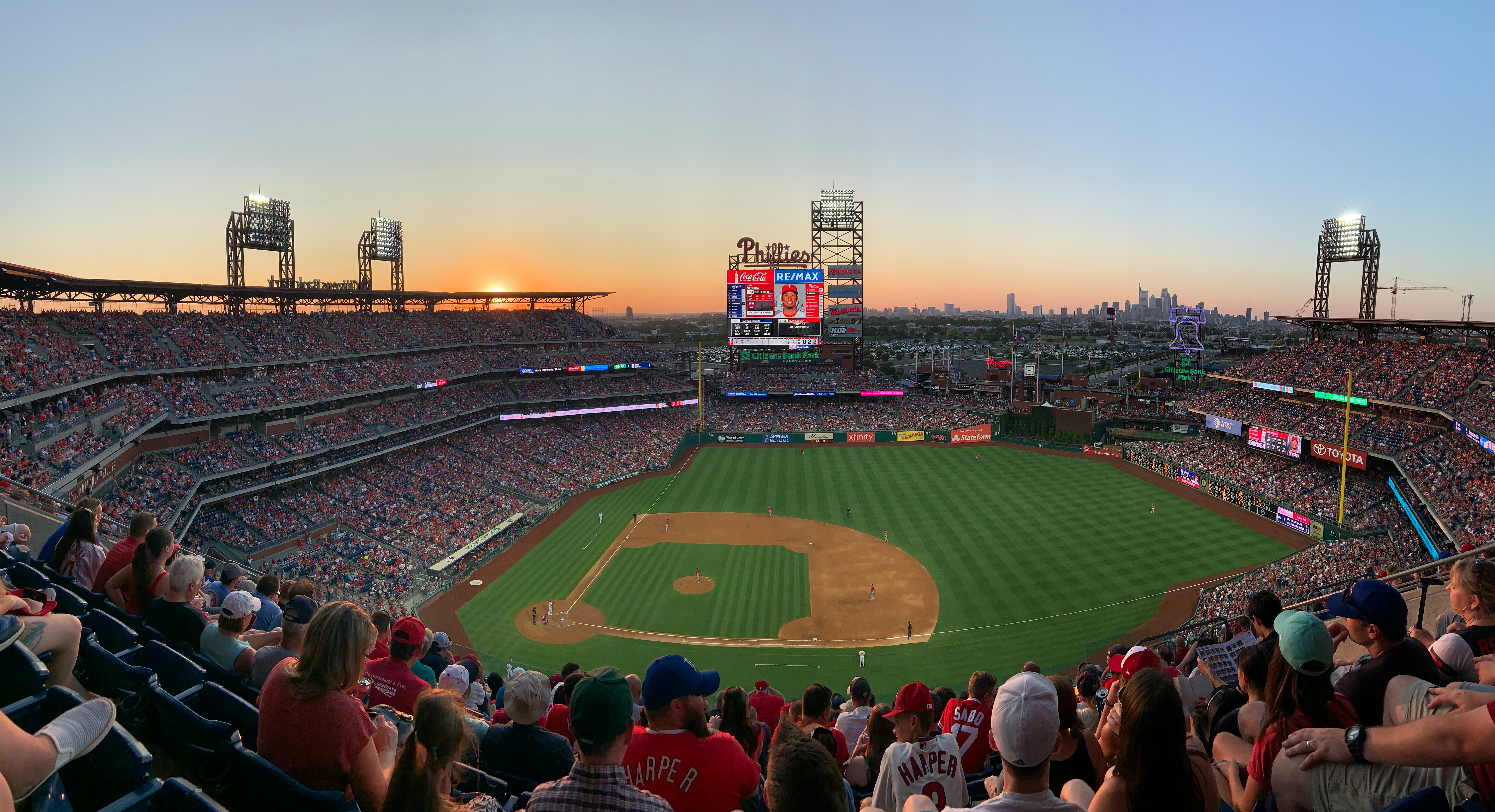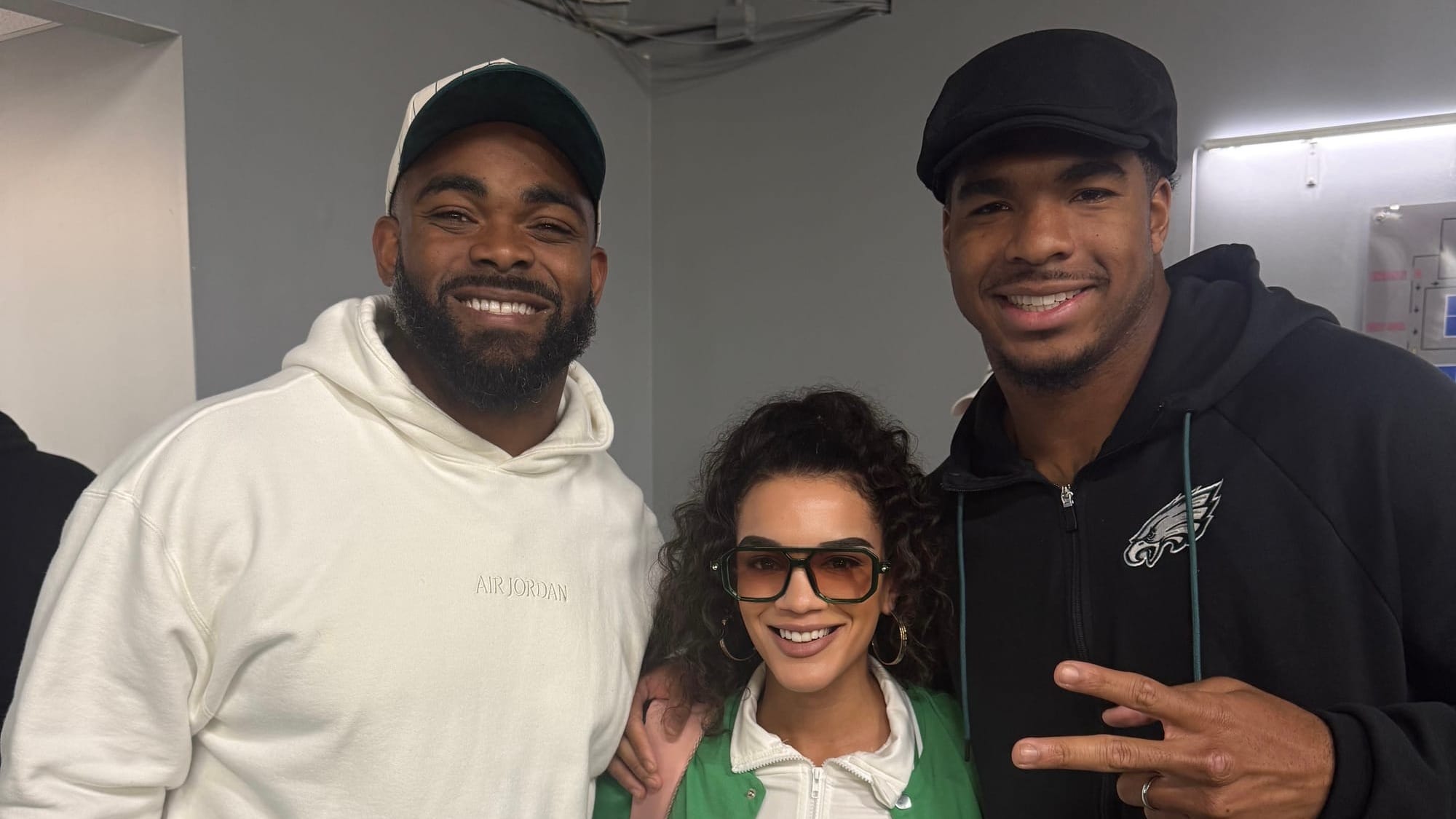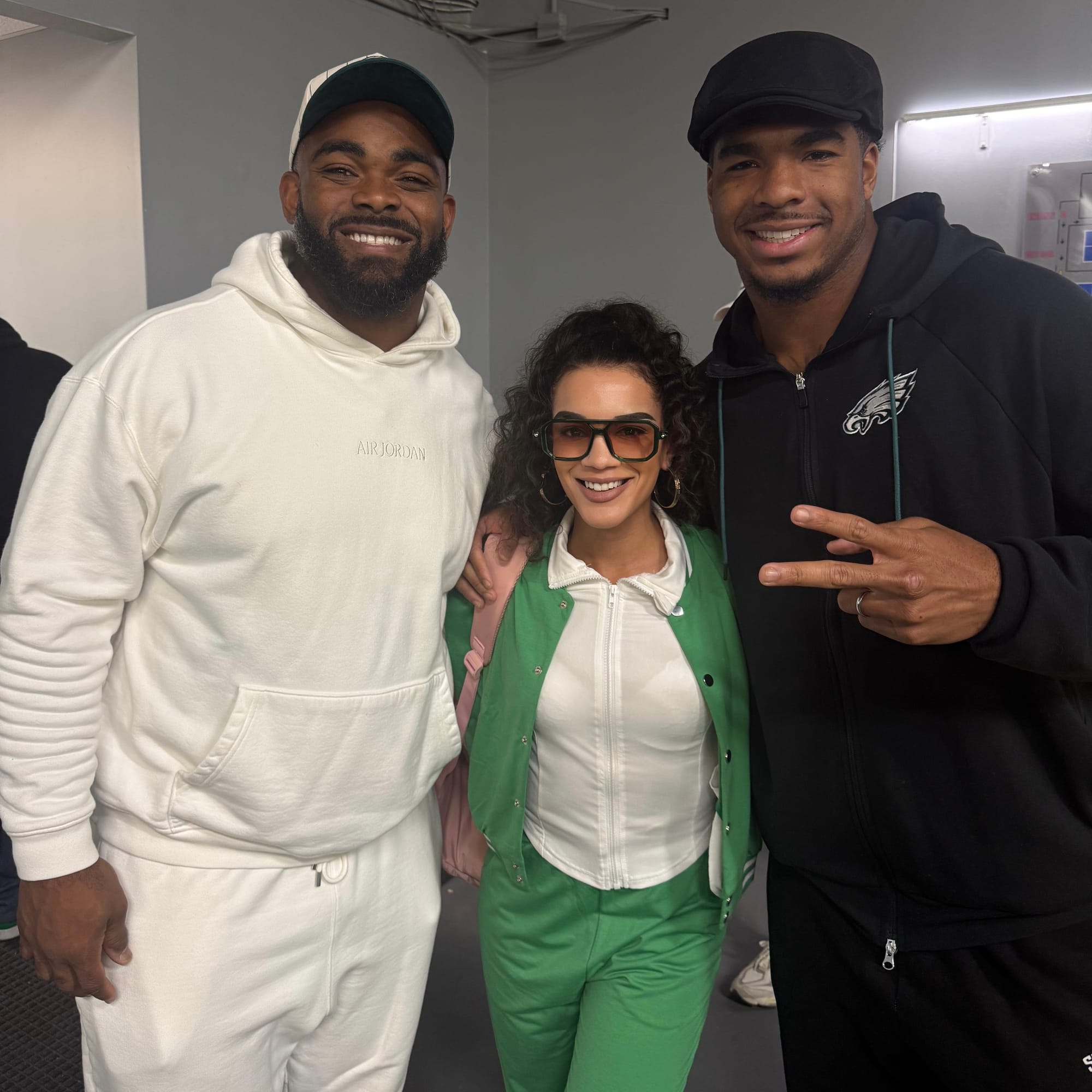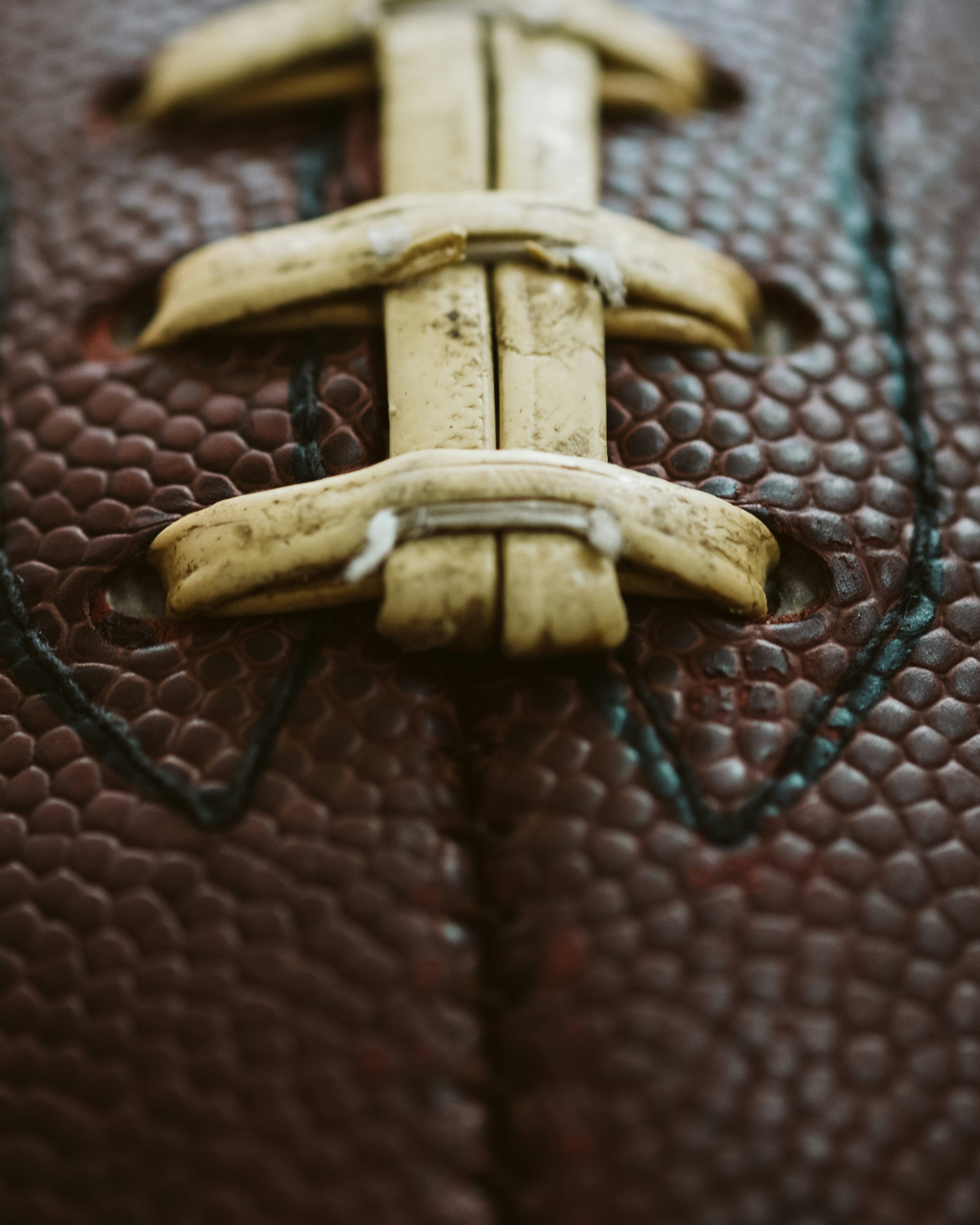Philadelphia Prepares for Baseball’s Biggest Stage
The game represents something larger: an opportunity to reckon with history, deepen connections, and open doors for the city’s next generation. That sense of reflection and responsibility anchored the latest “Dialogue on the Diamond” panel, hosted at Temple University.

When Major League Baseball’s All-Star Game comes to Philadelphia in 2026, it won’t just be about bats cracking and balls soaring at Citizens Bank Park. For the Phillies, Temple University, and the wider North Philadelphia community, the game represents something larger: an opportunity to reckon with history, deepen connections, and open doors for the city’s next generation.
That sense of reflection and responsibility anchored the latest “Dialogue on the Diamond” panel, hosted at Temple University and moderated by Claire Smith, the pioneering journalist and founding executive director of the Center for Sports Media.
The panel brought together a dynamic mix of voices. Dave Dombrowski, Phillies president of baseball operations; Doug Glanville, former MLB player and ESPN analyst; Del Matthews, MLB’s senior vice president of baseball; Jimmy Rollins, beloved Phillies shortstop and studio analyst; Mike Barsotti, Philadelphia sports director; and Linn Washington, professor and award-winning journalist. Over the course of the conversation, they touched on Philadelphia’s baseball legacy, MLB’s ongoing diversity challenges, and how the upcoming All-Star Game can be more than a spectacle, it can be a catalyst for change.
Much of the discussion opened with Philadelphia’s rich and complicated relationship with baseball. As Linn Washington reminded the audience, the city has been both a stage for triumph and a mirror of America’s broader struggles with race. Philadelphia is home to the storied Philadelphia Stars of the Negro Leagues, a team that produced legends but also exposed how Black athletes were systematically excluded from the major leagues for decades.
Washington urged that as the city readies itself for the All-Star spotlight, there must be intentional acknowledgment of this legacy. “You cannot celebrate the game without honoring those who were denied access to it,” he said. His remarks set the tone for a conversation that continuously circled back to the tension between baseball’s progress and the work that remains undone.
For Del Matthews, MLB’s commitment to inclusion must go beyond symbolic gestures. He highlighted programs aimed at bringing more Black and Brown youth into the sport, both on the field and in front offices. While MLB has invested in urban academies and diversity-driven hiring initiatives, Matthews acknowledged that the results are still uneven.
Former Phillie Doug Glanville offered a more personal perspective, describing his journey from a kid in Teaneck, New Jersey, to a career in the major leagues. For him, access and exposure were critical.
“If you don’t see yourself reflected in the game, it’s hard to imagine yourself in it,” Glanville said. His call underscored why visibility of players, coaches, executives, and media figures of color matters as much as policy changes.
Jimmy Rollins, one of the most iconic Black players in Phillies history, shared his own experience of coming up through baseball’s ranks. He acknowledged how representation has shifted since his playing days but noted the urgency of keeping baseball accessible for kids who might otherwise gravitate toward sports with fewer financial barriers, like basketball.
“We can’t price kids out of the game,” Rollins said, referencing the rising costs of travel teams, equipment, and showcase tournaments.
When the All-Star Game lands in Philadelphia, it won’t just be a celebration for fans, it will ripple across neighborhoods, particularly North Philadelphia, where the event is expected to have the most impact. Mike Barsotti emphasized the need for outreach that extends beyond the ballpark.
“If we’re going to bring the world to Philadelphia, we need to bring Philadelphia to the world,” he said, urging organizers to showcase the city’s culture, small businesses, and grassroots organizations.
Dave Dombrowski echoed this, outlining the Phillies’ plans to make the All-Star festivities inclusive. From youth engagement programs to partnerships with local schools and nonprofits, he framed the All-Star Game as both a logistical challenge and a once-in-a-generation opportunity. “It’s about legacy,” Dombrowski said. “What do we want people to remember after the lights go out?”
As the first woman honored with the Baseball Writers’ Association of America’s Career Excellence Award, Claire Smith knows the power of media to shape narratives. She reminded the audience that the stories told around the All-Star Game will influence how the event is remembered both by Philadelphians and by fans across the globe.
The panelists agreed that journalists, broadcasters, and community voices must highlight not just the glamour of the game but also the social and cultural dimensions. Coverage of the Negro Leagues, the lived experiences of local residents, and the ongoing fight for equity in baseball should all find a place in the spotlight.
By the end of the night, a common theme had emerged: Philadelphia’s 2026 All-Star Game cannot simply be about baseball. It must be about history, community, and a vision for the sport’s future.
For Rollins, that means making sure the next generation feels that the game belongs to them. For Glanville, it’s about building bridges of understanding across race and class. For Matthews, it’s about ensuring MLB’s diversity programs lead to tangible results. And for Dombrowski, it’s about ensuring the Phillies’ stewardship leaves a lasting impact on North Philadelphia. As Claire Smith closed the conversation, she reminded everyone that the dialogue doesn’t end here.
“This is a continuing conversation,” she said, urging the audience to carry the themes of the night into their own communities.
Philadelphia has always been more than just a sports town. It is a city of neighborhoods, of struggle and resilience, of history both painful and proud. With the All-Star Game on the horizon, “Dialogue on the Diamond” made clear that the event is not just a chance to shine, it’s a chance to redefine what baseball means at this moment.
For the Phillies, MLB, and the people of North Philadelphia, the true victory will be measured not in home runs or ticket sales, but in the connections forged and the doors opened long after the final pitch.



